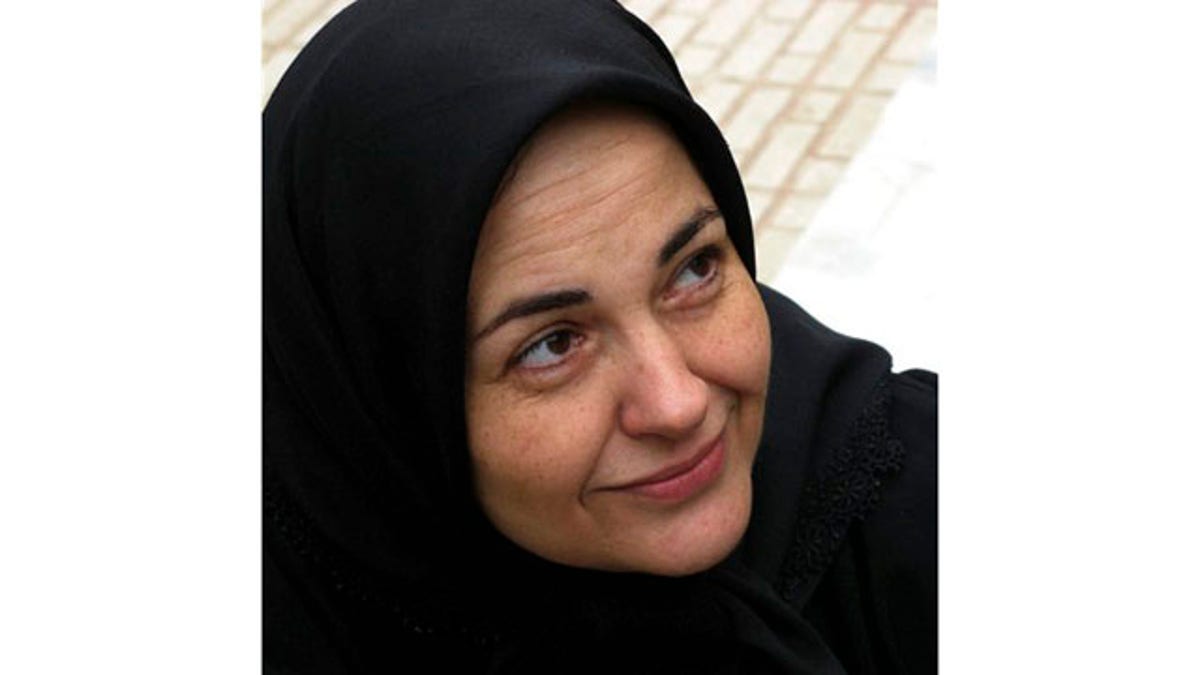
Undated picture allegedly shows Haleh Sahabi in an undisclosed location. (AP)
TEHRAN, Iran -- Government media said the daughter of a prominent Iranian dissident died of a heart attack while attending her father's funeral Wednesday, but opposition websites said she died in a scuffle with security forces.
Haleh Sahabi, 54 and a prominent activist and rights campaigner herself, collapsed and died Wednesday at the funeral of her father. He died on Tuesday.
The official IRNA news agency said Haleh Sahabi, 54 and a prominent activist and rights campaigner herself, died of "cardiac arrest" during the funeral. It said the activist was already suffering from high blood pressure and blood sugar.
Opposition websites, however, said she fell to the ground and died during a scuffle with security forces.
One of them, kaleme.com, said she died after security forces pushed her to the ground during scuffles. The website said Haleh was holding a picture of her father, Ezzatollah Sahabi, and fell when a security agent tried to forcefully take it from her. Haleh fell during the altercation and died before she could be taken to the hospital.
IRNA said five persons "who intended to disrupt order" were arrested. It didn't elaborate.
Haleh was imprisoned after the disputed 2009 presidential elections for supporting allegations that President Mahmoud Ahmadinejad's re-election was rigged but was temporarily released to attend her father's funeral.
The elder Sahabi, 81, died after being hospitalized with a brain hemorrhage.
Before his death the highly respected Sahabi, once an ally of the 1979 Islamic revolution and a member of the Revolutionary Council, strongly criticized the government for mistreatment of political prisoners.
Sahabi, a former lawmaker, was imprisoned for 15 years for criticizing the regime of Shah Mohammad Reza Pahlavi and later the hardline clerics who toppled him and seized power in 1979.
In 2003 a court sentenced Sahabi to 11 years after he was detained on the charge of trying to topple the government.
Sahabi was a senior leader of Iran's a loose nationalist-religious political alliance that promoted tolerance and personal freedoms. The alliance rejected violence but opposed the rule of hardline clerics and sought to bring changes through peaceful protest.
